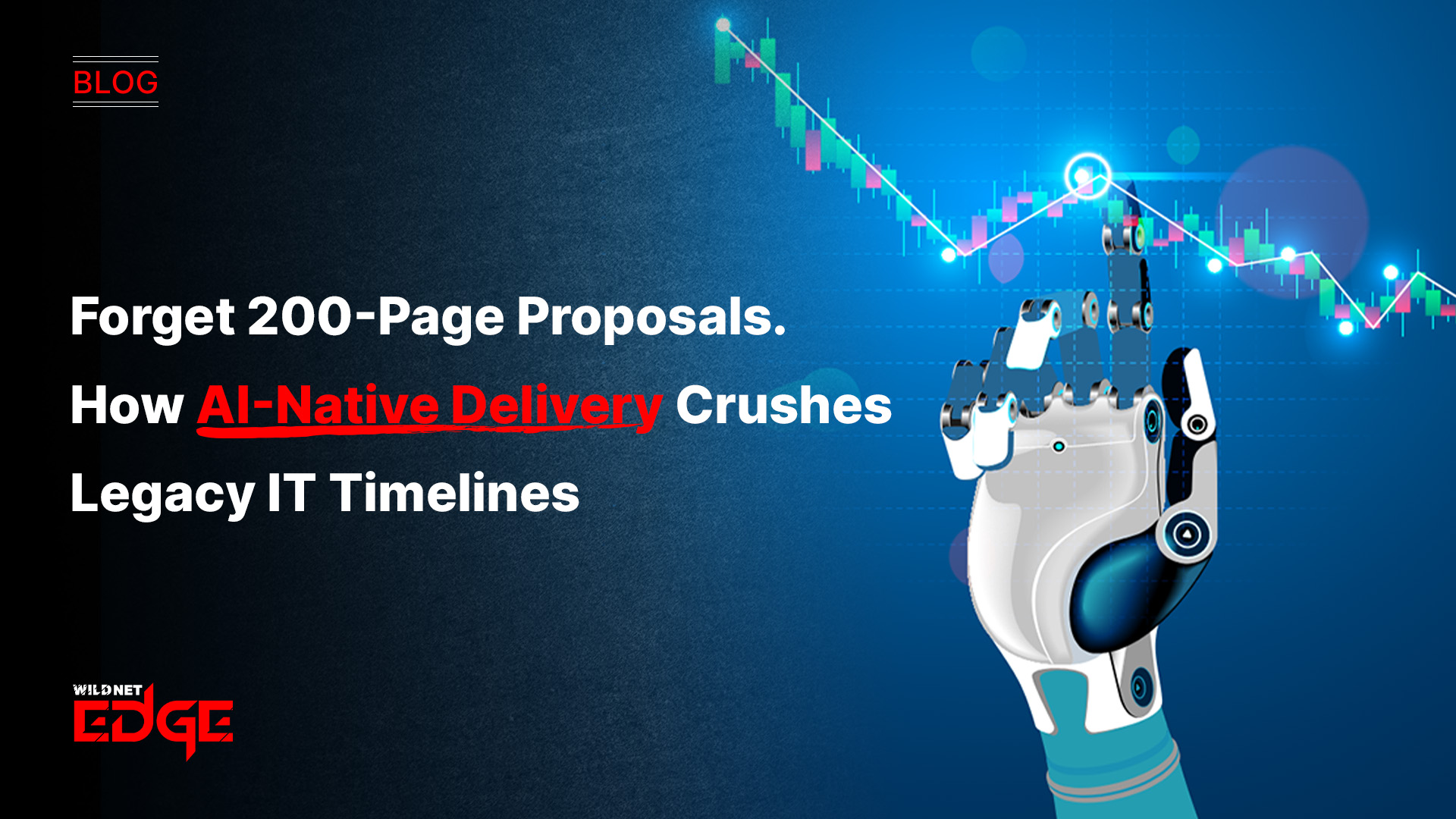In today’s fiercely competitive landscape, integrating artificial intelligence (AI) into business operations is not just advantageous; it’s essential. It can streamline processes, enhance decision-making, and drive customer engagement. However, the question remains: Are you struggling to effectively integrate AI into your business? This challenge is where AI strategy consulting becomes pivotal. It aids organizations in formulating a comprehensive AI roadmap tailored to their specific needs and goals. In this article, we will explore a detailed implementation roadmap for AI strategy consulting, emphasizing the significance of Key Performance Indicators (KPIs), ROI frameworks, and the collaboration needed with specialized firms like software development and mobile app development companies. By following this guide, you can position your business to leverage AI technologies effectively.
Understanding AI Strategy Consulting KPIs
Defining Key Performance Indicators for AI
Key Performance Indicators (KPIs) are measurable values that demonstrate how effectively a company is achieving key business objectives. In the context of AI strategy consulting, KPIs are crucial for assessing the performance of AI initiatives. They help stakeholders determine the success of the AI strategies implemented, enabling them to make data-driven adjustments when necessary.
Common KPIs used to measure AI initiatives include:
- Accuracy: The percentage of correct predictions generated by the AI model compared to actual outcomes.
- Precision and Recall: Metrics that evaluate the relevance of results produced by AI systems, particularly in classification tasks.
- ROI: A critical metric for assessing the financial returns from AI investments relative to their costs.
- User Adoption Rates: Measures the percentage of users who embrace new AI-driven features or tools.
- Cost Savings: Quantitative savings achieved as a result of implementing AI solutions, such as productivity enhancements or reduced operational costs.
By clearly defining these KPIs, businesses can create a blueprint for measuring the success of their AI initiatives over time.
The Role of AI Strategy Consulting in Measuring Success
AI strategy consulting plays an integral role in establishing and tracking these KPIs. By engaging with a consulting firm experienced in AI, businesses can ensure their initiatives align with broader organizational goals.
For example, consider a retail company that integrates an AI-powered recommendation engine. Their AI strategy consulting partner might help them define KPIs such as increased sales conversion rates and improved customer satisfaction scores. Regular monitoring against these KPIs enables the company to assess the recommendation engine’s effectiveness and make necessary adjustments, ensuring continuous improvement.
Moreover, successful AI projects often involve periodic assessments of these indicators. This ensures that the organization remains agile, adjusting its strategies based on performance insights gathered from KPI assessments. The process not only identifies areas of improvement but also highlights the success of AI investments, affirming their value to stakeholders.
Building an ROI Framework for AI Success
What is an ROI Framework in AI Strategy Consulting?
An ROI framework in the context of AI strategy consulting is a structured approach to evaluating the financial return on investment from AI initiatives. This framework is vital because it allows organizations to quantify the benefits derived from their AI projects against the costs incurred in their development and implementation.
To develop an effective ROI framework, organizations need to consider several components:
- Initial Investment Costs: This includes all expenditures related to developing and deploying AI solutions, such as hardware, software, and consulting fees.
- Operational Costs: Ongoing costs associated with the maintenance and improvement of AI systems.
- Tangible Benefits: These are measurable financial gains resulting from AI implementation, such as increased sales revenue, improved operational efficiency, and reduced labor costs.
- Intangible Benefits: While harder to quantify, benefits such as enhanced customer satisfaction and brand reputation are also crucial.
By systematically analyzing these elements, organizations can gauge the true value of their AI investments and justify further spending on AI initiatives.
Case Examples of ROI in AI Strategy Consulting
A notable example of an effective ROI framework in AI strategy consulting is the journey of a logistics company implementing predictive analytics. This company faced challenges related to shipment delays and inefficiencies in their supply chain. After partnering with an AI strategy consulting firm, they invested in an AI model that could predict shipment times based on various factors such as weather and transportation routes.
Within the first year, the company witnessed a 30% reduction in delays, translating into a quantifiable increase in customer satisfaction and savings on expedite shipping costs. The initial investment was recouped within six months, demonstrating the power of an effective ROI framework in understanding the value generated by AI-driven solutions. The success of this initiative led the company to expand its AI capabilities, thereby furthering its competitive advantage in the logistics space.
Collaborating with a Software Development Company
The Importance of Partnership in AI Strategy Consulting
Collaboration with a software development company is critical in integrating AI solutions into existing business frameworks. These partnerships ensure that businesses have the technical expertise required for AI implementation, allowing them to harness the full potential of their AI strategy.
A successful partnership can lead to innovative solutions that drive efficiency and effectiveness. For example, a financial services company that partnered with a software development company was able to automate its fraud detection processes using AI. The software development team was essential in customizing the AI models to meet specific regulations and risk factors inherent to the finance industry.
Additionally, this collaboration minimizes the risks associated with AI deployments. The software development company understands the intricacies of developing scalable and robust systems that can adapt as the business evolves and new AI capabilities emerge. This synergy between AI strategy consulting and software development creates a fertile ground for innovation and continuous improvement.
Choosing the Right Software Development Company
Selecting the right software development company is vital for the success of AI strategy consulting. Organizations should consider several criteria when making this decision:
- Experience in AI Implementations: The selected company should have a proven track record of successfully delivering AI projects in similar industries.
- Technical Expertise: Ensure the company has robust technical capabilities, including proficiency in machine learning, data analytics, and software integration.
- Agility: Choose a partner that approaches project management with agile methodologies, allowing for flexibility in adapting to changing business needs.
- Communication and Collaboration: Effective communication between your team and the development company is essential for aligning strategies and objectives.
By conducting thorough due diligence on potential partners, organizations can ensure they select a software development company that aligns with their goals and can drive successful AI implementations.
The Role of a Mobile App Development Company in AI Strategy
Integrating AI into Mobile Applications
Mobile app development companies play a vital role in bringing AI capabilities to the forefront of user engagement. As consumers increasingly rely on smartphones, integrating AI features into mobile applications can significantly enhance functionality and user experience.
Consider a health and fitness app that utilizes AI to offer personalized workout plans and nutrition advice based on user preferences and behaviors. By collaborating with a mobile app development company, the organization can leverage machine learning algorithms to analyze user data and continually refine its recommendations.
Moreover, integrating AI into mobile applications can lead to improved user retention rates. For instance, an AI-powered chatbot feature can be implemented to provide instant support and enhance user interaction, helping to maintain engagement and loyalty.
Benefits of Mobile Apps in AI Strategy Consulting
Combining mobile app development with AI strategy consulting offers numerous advantages:
- Improved User Engagement: AI features can create personalized experiences that resonate with users, leading to increased usage and satisfaction.
- Real-time Analytics: Through mobile apps, businesses can gather valuable data and insights in real time, which helps in adjusting strategies quickly based on user feedback.
- Enhanced Functionality: Incorporating AI allows apps to perform complex tasks, such as predictive analytics or image recognition, significantly improving the value proposition.
- Accessibility: Mobile applications provide users with immediate access to services, broadening the reach and facilitating the quicker adoption of AI-driven solutions.
These benefits underscore the importance of mobile app development as a key component of AI strategy consulting, as they allow businesses to connect with consumers in increasingly meaningful ways.
Challenges in AI Strategy Consulting Implementation
Common Obstacles in AI Strategy Consulting
Implementing an AI strategy is not without its challenges. Organizations often encounter several common obstacles during the implementation of AI strategies:
- Data Quality Issues: AI systems require high-quality data for effective operation. Inaccurate or incomplete data can lead to suboptimal results and wasted resources.
- Limited Understanding of AI: Organizations may struggle with a lack of understanding among employees about how AI works and its potential benefits, inhibiting successful adoption.
- Resistance to Change: Employees may be hesitant to adopt AI systems due to fears of redundancy or lack of confidence in new technologies.
- Integration Difficulties: Existing IT infrastructure may not always accommodate new AI solutions, posing additional hurdles in integrating AI technologies smoothly.
Understanding these challenges is essential for organizations looking to implement an AI strategy effectively. By acknowledging these pitfalls, companies can better prepare themselves to navigate potential roadblocks.
Strategies to Overcome Implementation Challenges
Overcoming these implementation challenges requires proactive strategies, including:
- Data Governance: Establishing clear data governance policies to ensure data accuracy and quality is vital for AI success. Regular audits and cleaning processes can help maintain data integrity.
- Training and Education: Implementing training programs focused on AI literacy can help employees understand and embrace AI technologies, reducing resistance and improving overall acceptance.
- Change Management Strategies: Deploying systematic change management strategies can ease transitions, fostering a culture of innovation where employees feel supported during their journeys with AI.
- Iterative Development: Embracing iterative methodologies that enable gradual implementation allows organizations to adapt and refine their strategies based on real-time feedback without overwhelming employees.
These strategies can minimize obstacles and pave the way for successful AI strategy implementation, ensuring organizations can fully capitalize on their investment in AI technologies.
Future Trends in AI Strategy Consulting
Emerging Technologies Impacting AI Strategy
As AI technologies continue to evolve, several emerging trends are shaping the future of AI strategy consulting. Key trends include:
- Automation: Automation is expected to become more sophisticated, with AI systems increasingly capable of taking on complex repetitive tasks, freeing up human labor for more strategic roles.
- Explainable AI (XAI): As organizations ramp up their AI initiatives, there will be greater demand for transparency in how AI models make decisions, leading to the rise of XAI, which aims to make AI outputs understandable to humans.
- AI in Edge Computing: The convergence of AI with edge computing allows data processing to occur closer to the source, reducing latency and improving real-time capabilities.
- AI Ethics and Governance: With increasing scrutiny around the ethics of AI, consulting firms will need to address governance issues surrounding data privacy and algorithmic bias, ensuring compliance with regulations and promoting responsible AI use.
These trends indicate that the landscape of AI strategy consulting will continue to shift dramatically. Staying abreast of these developments is critical for organizations looking to implement advanced AI solutions effectively.
Preparing for Future AI Strategy Consulting Needs
To ensure future success in AI strategy consulting, businesses must take proactive steps, including:
- Investing in Skills Development: Organizations should commit to continuous learning and skill development related to AI technologies to keep pace with rapid changes.
- Flexibility and Scalability: Companies must adopt flexible systems that can grow and adapt to incorporate new technologies as they arise, ensuring long-term investment viability.
- Long-term Strategic Vision: Establishing a long-term vision for AI integration allows for a comprehensive approach, addressing potential shifts in KPI measurements and ROI frameworks.
By preparing now, businesses can position themselves as leaders in the AI landscape, ready to leverage emerging technologies to their advantage.
Conclusion
A clear implementation roadmap for AI strategy consulting is essential for any organization aiming to harness the potential of AI technologies. From defining KPIs and building robust ROI frameworks to collaborating with software and mobile app development companies, every step is vital in ensuring success. By understanding and overcoming the inherent challenges of AI strategy implementation, businesses can thrive in a technology-driven future. At Wildnet Edge, we pride ourselves on being an AI-first company and a trusted authority in AI strategy consulting. If you would like to learn more about how we can help you develop and execute a comprehensive AI strategy for your business, feel free to reach out for a consultation.
FAQs
AI strategy consulting KPIs are specific metrics that measure the performance and success of AI initiatives, including accuracy, user adoption rates, and ROI.
An ROI framework evaluates financial returns against investments made in AI strategy consulting, analyzing costs, operational savings, and overall benefits from AI initiatives.
Collaboration ensures that AI solutions are effectively integrated into existing technology frameworks, leveraging specialized expertise for enhanced project success.
A mobile app development company helps integrate AI features into apps, ultimately enhancing user functionality and experience.
Challenges include data quality issues, limited understanding of AI, and organizational resistance to change, necessitating well-planned strategies to overcome them.

Managing Director (MD) Nitin Agarwal is a veteran in custom software development. He is fascinated by how software can turn ideas into real-world solutions. With extensive experience designing scalable and efficient systems, he focuses on creating software that delivers tangible results. Nitin enjoys exploring emerging technologies, taking on challenging projects, and mentoring teams to bring ideas to life. He believes that good software is not just about code; it’s about understanding problems and creating value for users. For him, great software combines thoughtful design, clever engineering, and a clear understanding of the problems it’s meant to solve.
 sales@wildnetedge.com
sales@wildnetedge.com +1 (212) 901 8616
+1 (212) 901 8616 +1 (437) 225-7733
+1 (437) 225-7733















 ChatGPT Development & Enablement
ChatGPT Development & Enablement Hire AI & ChatGPT Experts
Hire AI & ChatGPT Experts ChatGPT Apps by Industry
ChatGPT Apps by Industry ChatGPT Blog
ChatGPT Blog ChatGPT Case study
ChatGPT Case study AI Development Services
AI Development Services Industry AI Solutions
Industry AI Solutions AI Consulting & Research
AI Consulting & Research Automation & Intelligence
Automation & Intelligence













